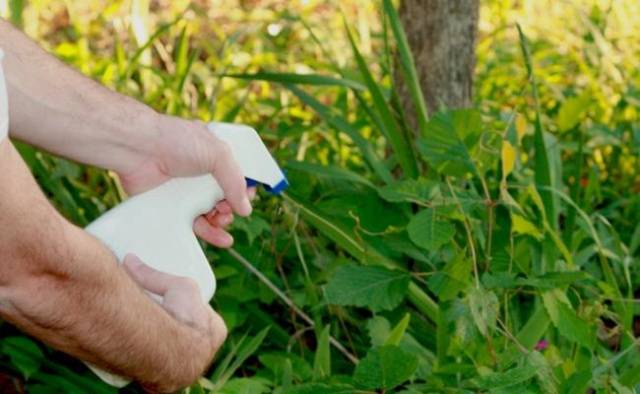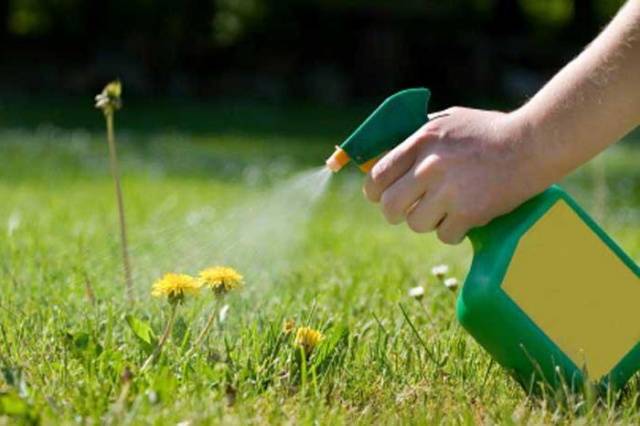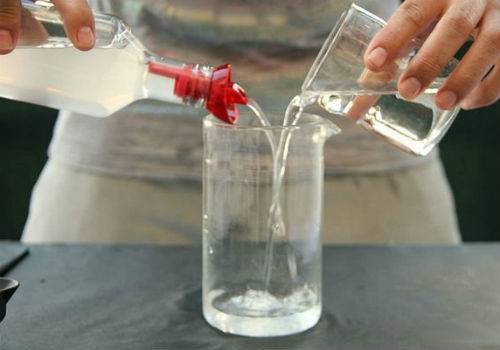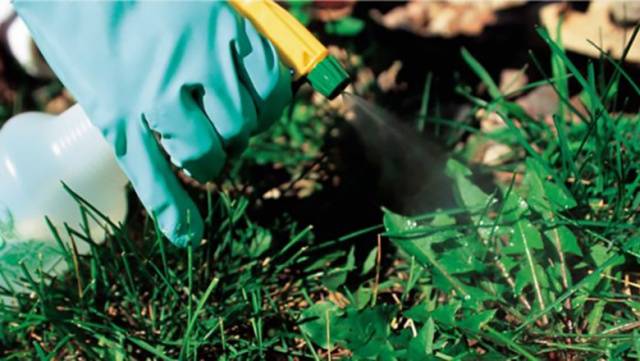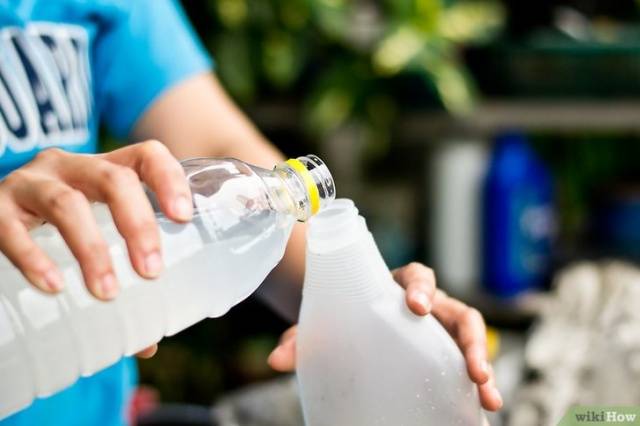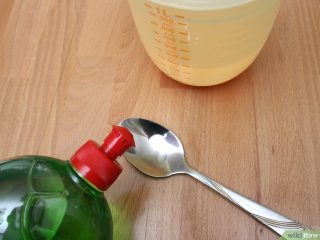It's no secret to most gardeners that vinegar can be used as a herbicide. Moreover, it is a completely ecological product. Some people use it alone or in combination with other components. Such substances only enhance the effect of the drug on weed vegetation. Funds based on it are great for gardeners who try not to use chemicals in their area. In this article, we will look at how to cook weed control from vinegar with your own hands.
Vinegar properties
Vinegar is an environmentally friendly substance that decomposes quite easily. Chemical herbicides can remain in the soil for a long time, which negatively affects the quality of the crops grown. Calling such a substance a herbicide is not entirely correct, since these drugs usually have a chemical composition. Vinegar, by contrast, is a natural substance. It is completely safe to use, but at the same time it can perfectly fight weeds.
To successfully remove weeds from your site, you must correctly use the prepared preparation. The fact is that it affects both weeds and grass and other plants in the same way. You cannot sprinkle the area chaotically with them. Thus, you can harm cultivated plants and flowers.
Many people find it convenient to spray plants from a regular spray bottle. A pump sprayer is also suitable. In this way, you can cultivate areas near the road, on sidewalks and in other places where you do not need to worry about other plants.
In addition, the effect of the substance is slightly enhanced in the sun. In order for the agent to affect only unwanted plants, you can apply the drug with a brush directly to the weeds themselves. Among the wide variety of vinegars, gardeners most often choose apple cider. Use the product in the form of an aqueous solution with an acid level of 5%.
For weed control, such an indicator may not be enough. To remove weeds from the site, the acidity must be 18% or more. Remember, an effective weed control product must have a high acidity level. Many gardeners prefer to use white vinegar, but any available vinegar will do.
Preparation options
Next, we will look at the most common weed control recipes:
- Vinegar as an independent remedy. Undiluted substance with an acidity level of at least 18% is excellent for removing weeds in your area.
- Vinegar and soap. You can use both liquid soap and dish detergent. To prepare the product, you must combine 1 liter of vinegar and 10 ml of liquid soap. The soap makes the application of the herbicide easier and more effective. A similar solution is used not only to combat weeds, but also for preventive measures against pests.
- A mixture of vinegar, soap and salt. To prepare such a herbicide, you should mix 3 liters of vinegar, a quarter glass of salt and 1 tablespoon of liquid soap. All components are thoroughly mixed and sprayed with weeds.
- Vinegar with citric acid. This herbicide consists of 1 liter of vinegar and 1 tablespoon of citric acid. The acid should be completely diluted in vinegar and a weed treatment agent can be used.
- Vinegar with essential oil.For the preparation of the herbicide, orange and clove essential oils are suitable. One tablespoon of oil is diluted in 1 liter of vinegar. Next, we remove unwanted plants with this tool.
How to Apply Weed Vinegar
A regular watering can or a plastic spray bottle will work for these materials. If the area is not very clogged, you can use a brush. Each individual plant is smeared with it. This method is more effective, since the substance acts directly on the weed. When spraying, there is a high chance of missing some plants or incorrectly distributing the solution.
In order for the use of the material to really help get rid of weeds and not harm cultivated plants, you must adhere to the following rules:
- remember that such materials can affect absolutely all plants. Apply or spray only on the plants to be removed;
- during preparation of preparations, observe the proportions exactly;
- the drug should not get into the soil. In everyday life, it is often used as a disinfectant. It is really capable of killing various bacteria, germs and mold. But, the quality of the soil from such a strong material can suffer. The fact is that the soil contains not only bad, but also beneficial microorganisms and bacteria.
- you also need to monitor the quality and composition of the liquid soap that is used to prepare the product. Substances such as phosphates and phenols are unacceptable for use. In addition, the soap should not contain bleach and sodium hypochlorite. These substances are toxic and can harm the environment.
Other uses
Every housewife is well familiar with this material. Dealing with unwanted plants is just one area in which this remedy will prove useful. Before chemical cleaning products came into use, vinegar was used in almost every home.
It has already been said above that it is an excellent insecticide. Vinegar can help you get rid of most pests in your area. For example, it fights well against cockroaches, bedbugs and lice. Many housewives use it to fight fungi, which are very afraid of acid. For the use of the substance for these purposes, a liquid with an acidity of at least 9% is suitable.
Some housewives use it when they clean their house. It can be used to clean surfaces from various contaminants. It not only perfectly cleans stains, but also acts as a disinfectant. To prevent the smell of vinegar from standing in the air, you should thoroughly wipe the surfaces after cleaning.
But most often this substance is used in cooking. It is a wonderful condiment. It is often added to vegetable and mushroom pickles. It is difficult to imagine the preservation of cucumbers and tomatoes without this ingredient.
Conclusion
As you can see, vinegar is a universal remedy both in the household and in the kitchen, and in the vegetable garden or garden. Recently, many gardeners have been using folk methods to combat weeds. Weed control vinegar fights almost all types of weed plants. It is an environmentally friendly product that does not contain any chemicals. But still, he has extraordinary strength and is able to remove even the most annoying plants. Preparations based on it are very easy to prepare with your own hands from improvised means. With such an assistant, your garden will always remain clean and not clogged.This article has shown how to deal with weeds using proven traditional methods.
